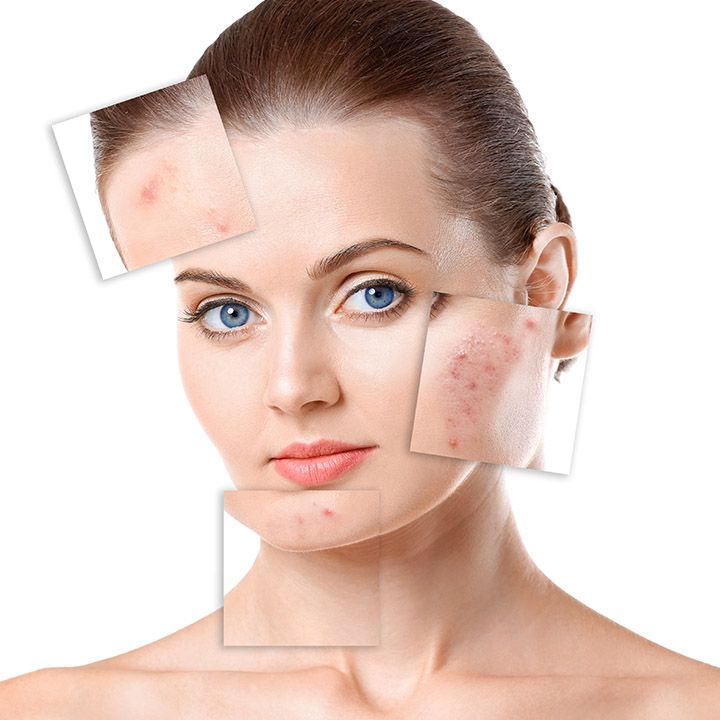Achieving healthy, glowing skin involves a combination of safe and effective skincare practices tailored to your specific skin type and concerns. Here are key principles and tips for the safest and most effective skincare routine:
1. Know Your Skin Type
Buy isotretinoin online your skin type (oily, dry, combination, sensitive, or normal) is essential for selecting the right products and treatments.
2. Basic Skincare Routine
A simple yet effective skincare routine typically includes the following steps:
Cleansing
- Frequency: Twice daily (morning and night).
- Product: Use a gentle, sulfate-free cleanser that suits your skin type. For oily skin, use a foaming cleanser; for dry skin, use a hydrating or cream-based cleanser.
- Tip: Avoid over-cleansing, which can strip your skin of its natural oils.
Exfoliating
- Frequency: 1-3 times a week, depending on your skin type and tolerance.
- Product: Choose a gentle exfoliant. Chemical exfoliants like AHAs (glycolic acid) and BHAs (salicylic acid) are effective without being too harsh.
- Tip: Avoid over-exfoliating, which can cause irritation and damage.
Toning
- Purpose: Balances skin pH and prepares it for subsequent treatments.
- Product: Buy Accutane online Use an alcohol-free toner suited to your skin type. Hydrating toners with ingredients like hyaluronic acid or glycerin are beneficial.
- Tip: Apply using a cotton pad or your hands and pat gently.
Moisturizing
- Frequency: Twice daily.
- Product: Use a moisturizer that suits your skin type. Gel-based for oily skin, cream-based for dry skin.
- Tip: Look for ingredients like hyaluronic acid, ceramides, and glycerin for hydration.
Sun Protection
- Frequency: Daily, regardless of the weather.
- Product: Use a broad-spectrum sunscreen with at least SPF 30.
- Tip: Reapply every two hours when exposed to sunlight. Look for sunscreens with zinc oxide or titanium dioxide for sensitive skin.
3. Targeted Treatments
Incorporate treatments for specific skin concerns:
Serums
- Usage: Apply after toning and before moisturizing.
- Ingredients:
- Vitamin C for brightening and antioxidant protection.
- Retinol for anti-aging and acne.
- Niacinamide for reducing redness and improving skin barrier.
- Tip: Introduce one serum at a time to monitor skin response.
Spot Treatments
- Purpose: Address acne or hyperpigmentation directly.
- Ingredients:
- Benzoyl peroxide or salicylic acid for acne.
- Hydroquinone or tranexamic acid for dark spots.
- Tip: Use sparingly and only on affected areas.
4. Hydration and Diet
- Hydration: Drink plenty of water to keep your skin hydrated from within.
- Diet: Eat a balanced diet rich in fruits, vegetables, lean proteins, and healthy fats. Foods high in antioxidants (berries, leafy greens) and omega-3 fatty acids (salmon, flaxseeds) are particularly beneficial.
5. Healthy Lifestyle Choices
- Sleep: Aim for 7-9 hours of quality sleep per night to allow your skin to repair and regenerate.
- Exercise: Regular physical activity boosts circulation and promotes healthy skin.
- Stress Management: Practice stress-relieving activities such as yoga, meditation, or deep breathing exercises to prevent stress-induced skin issues.
6. Avoid Harmful Practices
- Over-Exfoliating: Can damage the skin barrier and cause irritation.
- Harsh Products: Avoid products with alcohol, sulfates, and synthetic fragrances that can irritate the skin.
- Picking or Squeezing: Avoid picking at pimples or blackheads to prevent scarring and infection.
7. Consult a Dermatologist
For persistent skin issues or to tailor a skincare routine to your specific needs, consult a dermatologist. They can provide professional advice and treatments such as chemical peels, laser therapy, or prescription medications.
Conclusion
A safe and effective skincare routine involves understanding your skin type, following a consistent regimen of cleansing, exfoliating, moisturizing, and protecting with sunscreen, and addressing specific concerns with targeted treatments. Complement these practices with a healthy diet, adequate hydration, and lifestyle choices that support overall well-being. For personalized advice and treatment, don’t hesitate to seek guidance from a dermatologist. By adopting these principles, you can achieve and maintain healthy, radiant skin.

